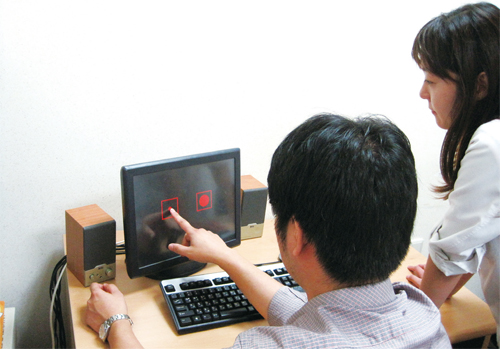| Introduction |
The Department of Psychiatry of Kyungpook National University School of Medicine was established in 1957, beginning the nation’s first studies in epidemiology and enlightening the public about psychiatric illnesses. For over 50 years, it has had a full range of clinical programs for patients with psychiatric disorders and run an independent psychiatric consultation team to take care of patients with medical illnesses. In the area of training and education, it provides both didactic and clinical learning experience for all medical school students, programs for general psychiatry residency training, child fellowship training and post-residency fellowships. The department is involved in four key research areas, as listed below.
(1) In biological psychiatry and psychopharmacology, the biological etiology of psychiatric disturbances, and clinical as well as pharmacological aspects of new drugs are studied. With the help of the Clinical Trail Center in the hospital, studies of pharmacodynamics, pharmacokinetics, and pharmacogenomics are carried out. We currently investigate the steady-state plasma levels of risperidone and 9-OH-risperidone and assess clinical response and extrapyramidal side effects while switching from oral risperidone to paliperidone ER tablets in schizophrenia. Various aspects of empathy using multiple neuroimaging technologies in healthy participants and psychiatric subjects are being tested to find out the neural correlates of empathic ability. We recently reported a multi-level cortical dysfunction that underlies a deficit in each subcomponent of empathy in schizophrenia.
(2) Major efforts have also been made to study the biological basis of mood disorders. Our main research interests are disturbances in neurocognition and hierarchical emotional process. To lessen the country’s suicide rate, which is the highest among OECD nations, is the imminent task of all Korean psychiatrists. We have established a research network of four medical university hospitals and have studied to understand suicidal behavior in the perspective of the stress vulnerability model.
(3) In Psychosomatic Medicine, we enthusiastically participate in the Mental Health Assessment and Support Team (MHAST) for breast cancer patients. To date, approximately 400 patients have been provided with psychosocial intervention through the MHAST. Recent research has focused on the demographic and psychosocial factors associated with the diagnosis, treatment outcome, and prognosis in breast cancer patients.
(4) The division of child and adolescent psychiatry is to provide leadership in the field of child and adolescent mental health by integrating research, clinical practice, and education. Research in this division explores psychopathology in children and adolescents, psychotherapy process and outcomes, early childhood stress/trauma, psychological adjustment for children with medical disorders, clinical psychopharmacology trials, and juvenile justice issues. The division has run an official fellowship training program for child and adolescent psychiatrists since 2010. We have also run the Sunflower Center since 2005, supported by the Ministry of Gender Equality and Family. Our research interests include, amongst others, evaluating and treating posttraumatic stress disorder, autism spectrum disorder, and attention deficit hyperactivity disorder.
(5) Geriatric psychiatry is a subspecialty of psychiatry dealing with the study, prevention, and treatment of mental disorders in elderly people. A psychiatrist can complete one-year fellowship and receive a certificate of completion officially awarded by the Korean Society for Geriatric Psychiatry. We have been also running the Daegu Metropolitan Center for Dementia since 2012, supported by the Ministry of Health and Welfare.

|
| Professors |
Chairman: Prof. Seung Hee Won, MD, PhD(wonsh864@knu.ac.kr) Hyo Deog Rim, MD, PhD
Sung Hoon Jeong, MD, PhD
Sung Man Chang, MD, PhD
Seung Jae Lee, MD, PhD
Seung Hee Won, MD, PhD
Un Sun Chung, MD, PhD
Byung Soo Kim, MD, PhD |
